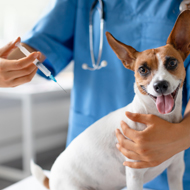Pathologists call for more training for vet professionals
The college says better training is needed for companion animal, equine and aquatic disease surveillance.
The Royal College of Pathologists has called for expanded animal disease surveillance training for veterinary microbiologists and pathologists.
It believes that improved training, which would cover pets, horses and fish, could advance the UK’s ability to identify and tackle antimicrobial resistance.
Antimicrobial resistant infections can be zoonotic, meaning they transmit between humans and animals. As well as being spread through food and livestock, some studies suggest that antimicrobial resistant infections can spread between pets and their owners.
Although the college says the UK has made significant progress with reducing antibiotic use in animals since 2014, it believes better training is needed on companion animal, equine and aquatic disease surveillance.
The Royal College of Pathologists has called surveillance ‘crucial’ to tackling antimicrobial resistance. It says that effective surveillance can prevent unnecessary antibiotic use, detect resistant strains and prevent the spread of antimicrobial resistance.
Most surveillance training focuses on livestock, poultry and wildlife, however the college says there is a lack of focus on companion animals, equines and aquatic life.
The Royal College of Pathologists has suggested that the Department of Environment, Food and Rural Affairs, universities, the private sector and animal health organisations and institutes could provide veterinary microbiologists ands pathologists with better training opportunities into animal disease surveillance training.
The capability of antimicrobial resistant infections to be zoonotic means that they are considered to be a One Health issue. Therefore, cooperation between human, animal and environmental sectors is considered to be key to mitigating the impact.
Alongside improved training opportunities, the Royal College of Pathologists recommends further research into alternatives to antimicrobials, such as bacteriophages. It is calling for investment into the development and promotion of new veterinary vaccines, as well as new rapid diagnostic tests.
It has also highlighted the importance of improved data collection support, particularly among farmers, to optimise antimicrobial stewardship.
Pamela Kelly, Veterinary Specialty Advisory Committee chair for the college, said: “Antibiotics are critical to human and animal medicine, but the emergence of antimicrobial resistance is of global concern.
“Expanding surveillance training in the UK to cover all animals including pets, horses and fish, will support veterinary microbiologists and pathologists in monitoring infections and help tackle the rise of resistance.”
The Royal College of Pathologists’ full statement can be read here.
Image © Shutterstock



 RUMA CA&E has extended the deadline for its online survey into vaccine availability.
RUMA CA&E has extended the deadline for its online survey into vaccine availability.